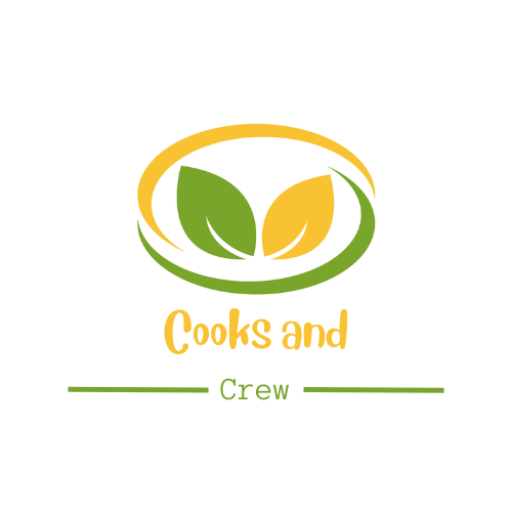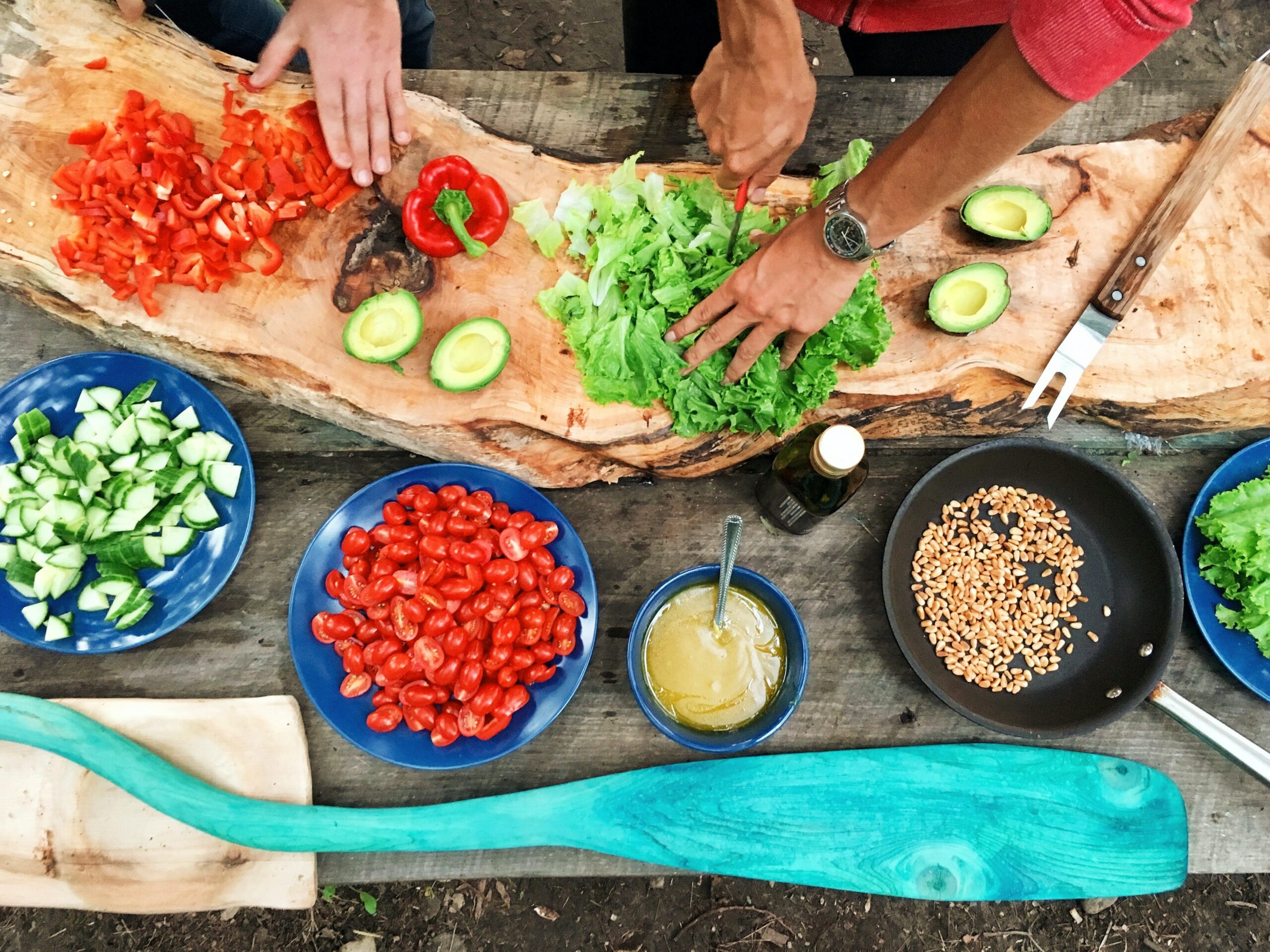
Are you new to the world of cooking and looking for some helpful tips? Look no further! This article provides invaluable advice for beginners who want to enhance their culinary skills and take their first steps in the kitchen. Discover essential tips and tricks that will make your cooking experience easier, more enjoyable, and ultimately lead to delicious results. Whether you’re eager to impress your friends and family or simply want to explore the joy of cooking, these tips will set you off on the right path. So grab your apron and let’s get started!
Purchasing Ingredients
Know what you need
When it comes to cooking, one of the first things you should do is make a list of the ingredients you’ll need for your dish. This will help you stay organized and ensure that you don’t forget any key ingredients. Take some time to review the recipe and go through your pantry to see what you already have. This way, you’ll only need to purchase what you’re missing.
Read labels carefully
When you’re at the store, make sure to take the time to read the labels on the ingredients you’re considering. This will help you understand what’s in the product and make informed choices about what you’re putting into your dishes. Look out for any potential allergens or additives that you may want to avoid.
Buy fresh produce
When it comes to fruits and vegetables, buying fresh is always the way to go. The quality and flavor of your dishes will greatly depend on the freshness of your ingredients. Look for produce that is firm, vibrant in color, and free from any blemishes or signs of spoilage. If possible, try to buy produce that is in season for the best taste and value.
Choose quality meats
When purchasing meat, it’s important to choose quality cuts that will enhance the flavors of your dishes. Look for fresh, well-marbled meat that is free from any strong odors or discoloration. If you have the option, consider buying from a local butcher or farmer’s market, where you can often find higher quality meats.
Setting Up Your Kitchen
Organize your tools and equipment
Having a well-organized kitchen will make your cooking experience much more enjoyable and efficient. Take some time to declutter your cabinets and drawers and invest in some storage solutions, such as drawer dividers or hanging racks, to keep your tools and equipment neatly organized. This way, you’ll always be able to find what you need when you need it.
Stock up on basic pantry staples
There are certain pantry staples that every beginner cook should have on hand. These include items like olive oil, salt, pepper, garlic, onions, flour, sugar, and basic spices. These ingredients will serve as the foundation for many of your dishes and will ensure that you always have the basics to whip up a meal.
Invest in essential cookware
Having the right cookware is essential for successful cooking. Invest in a few key pieces, such as a good set of pots and pans, a sturdy cutting board, a sharp chef’s knife, and a set of measuring cups and spoons. You don’t need to break the bank, but investing in quality cookware will make a noticeable difference in your cooking results.
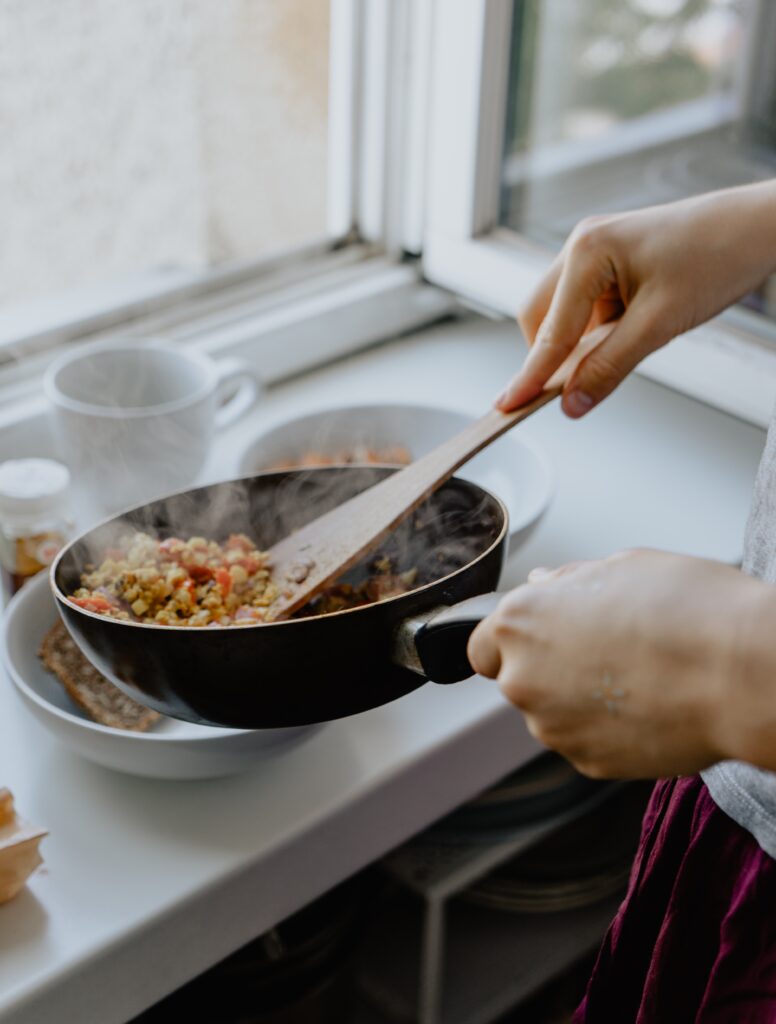
Knife Skills
Hold the knife properly
Knowing how to properly hold a knife is a fundamental skill in the kitchen. Make sure you have a firm grip on the handle with your dominant hand and use your other hand to guide and stabilize the ingredient you’re cutting. The blade should rest against your knuckles, with your fingertips tucked safely under the handle.
Learn basic cutting techniques
Once you have a solid grip on your knife, it’s time to learn some basic cutting techniques. Start with the basics, such as slicing, dicing, and chopping, and gradually work your way up to more advanced techniques like julienne or chiffonade. Practice is key here, so don’t be afraid to take your time and experiment with different cutting styles.
Practice knife safety
Knife safety is of utmost importance in the kitchen. Always use a cutting board to protect your countertops and make sure it’s stable and secure. Keep your fingers curled under and away from the blade while cutting, and always cut away from your body to avoid accidents. When you’re finished, clean your knife and store it safely to prevent any injuries.
Measuring Ingredients
Use measuring cups and spoons
Accurate measurements are crucial in cooking, especially when it comes to baking. Invest in a set of measuring cups and spoons and use them to measure out your ingredients. Make sure to level off dry ingredients with a flat edge and pour liquids at eye level for the most precise measurements.
Weigh ingredients for precision
For even more precision, consider investing in a kitchen scale. This is especially helpful when it comes to measuring ingredients by weight, such as flour or chocolate. Weighing your ingredients will ensure that your recipes turn out consistently well and you’ll be able to replicate them with ease.
Follow recipe ratios
When it comes to cooking, understanding recipe ratios is key. Pay attention to the proportions of ingredients listed in the recipe and make sure to follow them closely. This will help you achieve the desired balance of flavors and ensure that your dishes turn out delicious each time.
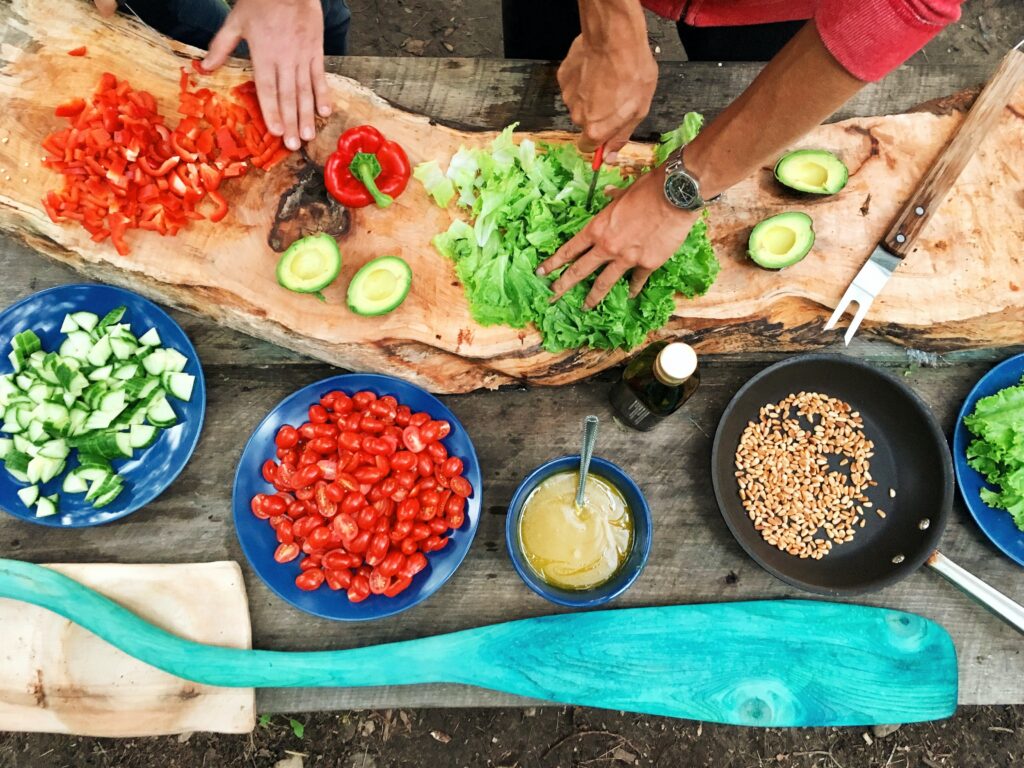
Prepping Ingredients
Wash vegetables and fruits
Before using any fruits or vegetables, it’s important to wash them thoroughly. This helps remove any dirt or bacteria that may be present on the surface. Use clean water and gently scrub the produce under running water, even if you plan to peel or cook it. This simple step promotes food safety and enhances the overall cleanliness of your dishes.
Peel and chop ingredients
Once your produce is clean, it’s time to peel and chop as needed. Use a vegetable peeler or a paring knife to remove the skin from ingredients like potatoes or carrots. When it comes to chopping, make sure to use proper cutting techniques and be mindful of your fingers. Take your time and aim for uniform pieces to ensure even cooking.
Prepare ingredients in advance
To make your cooking process smoother and more efficient, consider preparing some ingredients in advance. This could include chopping onions, mincing garlic, or measuring out spices and seasonings. Having these components ready to go will save you time and make the actual cooking process much easier and enjoyable.
Flavor Enhancers
Experiment with herbs and spices
Herbs and spices are the secret to adding depth and complexity to your dishes. Don’t be afraid to experiment with different flavors and combinations to find your own unique tastes. Start with some basic herbs like basil, parsley, and thyme, and move on to explore more exotic spices like cumin, turmeric, or paprika. The world of herbs and spices is vast, so have fun and let your taste buds be your guide.
Balance flavors with salt and acid
Salt and acid are two essential components in creating balanced flavors in your dishes. They are key in enhancing and bringing out the natural tastes of your ingredients. Experiment with different types of salt, such as sea salt or kosher salt, and varying degrees of acidity from ingredients like lemon juice or vinegar, to find the perfect balance in your meals.
Try using different oils and vinegars
Oils and vinegars can greatly impact the flavor profiles of your dishes. Experiment with different types of oils such as olive oil, coconut oil, or sesame oil to add a unique taste to your cooking. Similarly, explore the wide range of vinegars available, such as balsamic vinegar, apple cider vinegar, or rice vinegar, to bring acidity and complexity to your recipes.
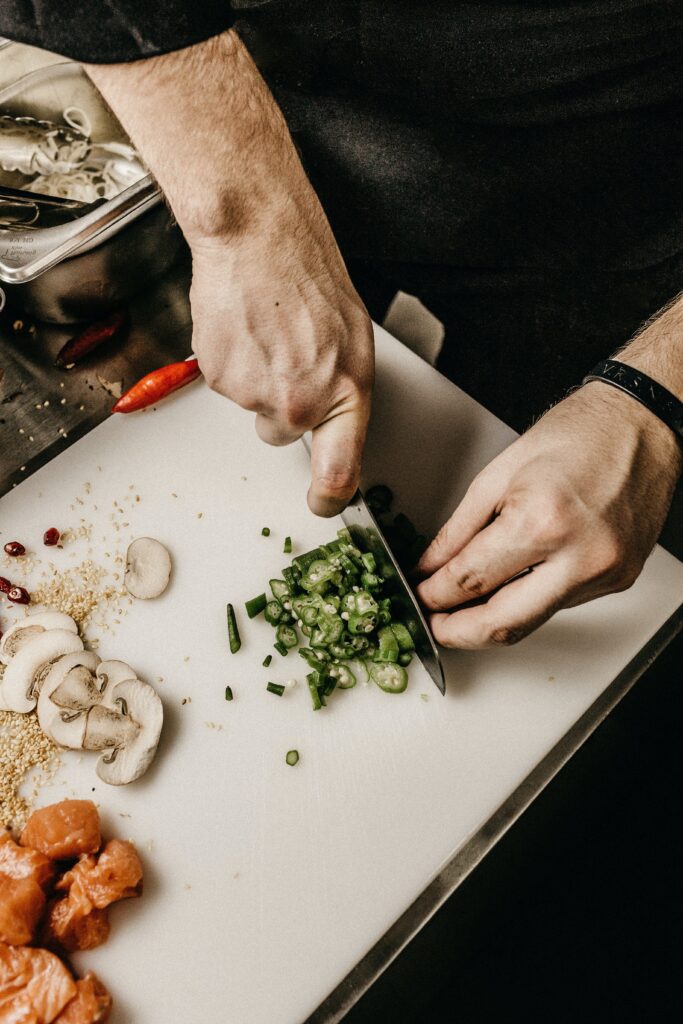
Cooking Techniques
Sauteing and stir-frying
Sautéing and stir-frying are quick and versatile cooking techniques that involve cooking food in a little oil over high heat. These methods allow for the natural flavors of the ingredients to shine through while cooking them quickly and maintaining their texture. Practice your sautéing and stir-frying skills by experimenting with different vegetables and proteins to create delicious and nutritious meals.
Boiling and simmering
Boiling and simmering are common cooking techniques used for making soups, stews, or boiling pasta and grains. Boiling involves rapidly cooking food in a large amount of water, while simmering involves gentler heat and longer cooking times. These techniques are great for extracting flavors and tenderizing ingredients, so make sure to keep an eye on the temperature and cooking times to achieve the desired results.
Baking and roasting
Baking and roasting are dry heat cooking methods perfect for preparing a wide variety of dishes, from fluffy cakes to succulent roasted meats. Baking involves cooking in an enclosed oven using indirect heat, while roasting applies higher temperatures to create a delicious crust and caramelization. Familiarize yourself with your oven’s temperature and take note of cooking times to create perfectly baked or roasted meals.
Grilling and broiling
Grilling and broiling are fantastic techniques to achieve a unique smoky or charred flavor to your dishes. Grilling involves cooking food over an open flame or hot charcoal, while broiling uses direct heat from above. Whether it’s vegetables, meats, or seafood, these techniques add depth of flavor and create impressive dishes that are sure to impress family and friends.
Temperature Control
Understand heat levels
Understanding heat levels and how they affect your cooking is crucial for achieving the desired results. Different dishes and ingredients require different levels of heat, whether it’s a low simmer or a searing hot pan. Familiarize yourself with the various heat settings on your stove or oven and learn how to adjust them accordingly to ensure your dishes come out perfectly cooked every time.
Adjust cooking temperatures
Don’t be afraid to adjust cooking temperatures as needed during the cooking process. For example, if you find that your food is browning too quickly, lower the heat slightly to prevent burning. On the other hand, if you need to speed up cooking times, raising the temperature can help. Practice adjusting cooking temperatures to adapt to various recipes and your preferences.
Use a food thermometer
Using a food thermometer is a reliable way to ensure your food is cooked to the proper internal temperature, especially when it comes to meats. This helps eliminate the guesswork and guarantees that your food is safe to eat. Invest in a digital food thermometer and familiarize yourself with the recommended internal temperatures for different types of meat to achieve optimal results.
Food Safety
Keep a clean kitchen
Maintaining a clean and sanitary kitchen is essential for food safety. Wash your hands thoroughly before and after handling raw ingredients, and regularly clean your countertops, cutting boards, and utensils. Keep separate cutting boards and utensils for raw meats and other ingredients, and make sure to properly store and refrigerate perishable items.
Handle raw meat properly
Handling raw meat requires extra care to prevent cross-contamination and the spread of bacteria. Make sure to use separate cutting boards and utensils for raw meat and wash them thoroughly with hot, soapy water after each use. Keep raw meat refrigerated until you are ready to cook it, and avoid placing cooked food on the same plate that held raw meat to prevent any potential contamination.
Store leftovers correctly
Leftovers are a great way to enjoy your delicious creations, but it’s important to store them correctly to ensure their safety. Allow leftover food to cool before storing it in airtight containers in the refrigerator to prevent the growth of bacteria. Label containers with the date to keep track of freshness and try to consume leftovers within a few days to maintain their quality and flavor.
Recipe Adaptations
Follow recipes closely
When you’re just starting out, it’s best to follow recipes closely to get a feel for cooking techniques and flavors. Pay attention to measurements, cooking times, and instructions to ensure the best results. As you gain confidence and experience, feel free to experiment and add your personal touch to recipes, but always keep in mind that some modifications may affect the overall outcome.
Substitute ingredients when necessary
Sometimes you may find yourself lacking a specific ingredient called for in a recipe. Don’t worry, there are usually suitable substitutes available. Use online resources or cooking books to find ingredient substitutions that offer similar flavors or textures. While it may not be an exact match, it will allow you to proceed with your cooking and still enjoy a delicious meal.
Adjust cooking times and temperatures
Each cooking environment is different, and factors such as altitude, humidity, and the type of equipment you’re using can affect cooking times and temperatures. Be prepared to adjust cooking times and temperatures as needed to achieve the desired results. Keep an eye on your dishes while they’re cooking and use your senses to determine when they’re perfectly done.
By following these tips and practicing your cooking skills, you’ll be well on your way to becoming a confident home cook. Remember, cooking is a journey of discovery and enjoyment, so have fun, be creative, and don’t be afraid to make mistakes along the way. With time and practice, you’ll develop your own cooking style and create delicious meals that will impress both yourself and others. Happy cooking!
